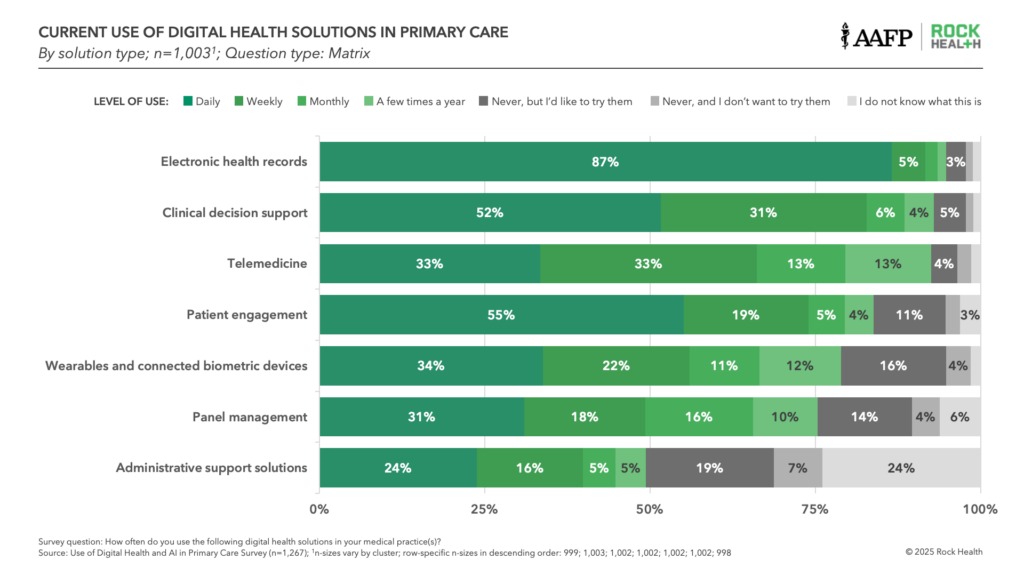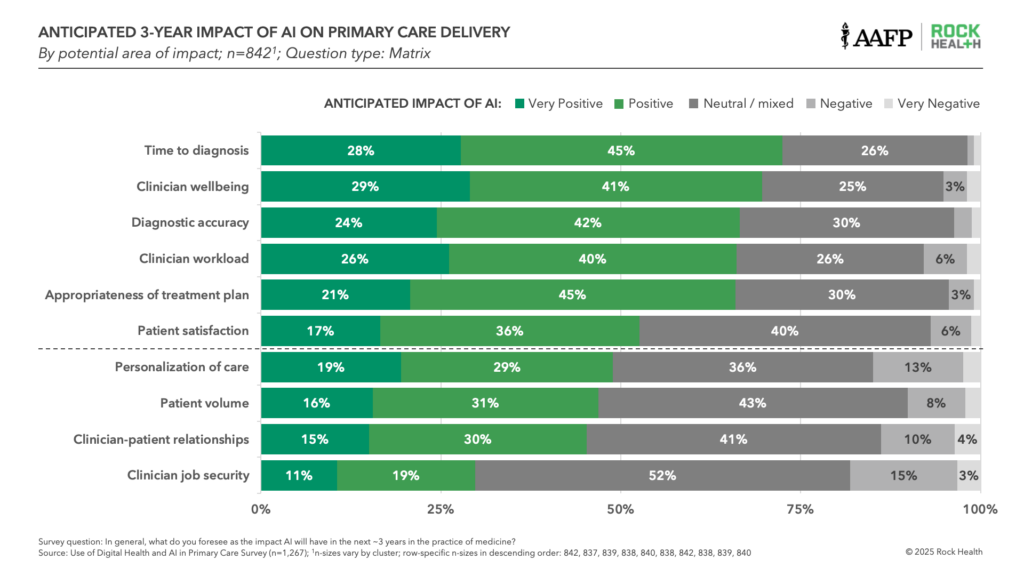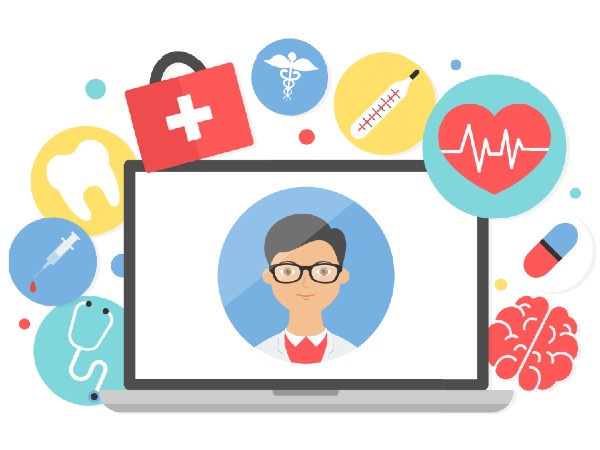
Physicians in general are adopting artificial intelligence at a pretty fast rate, even if they don’t entirely trust it yet. But what about primary care specifically? They are not only the front lines of healthcare for the majority of patients, but they deal with a wide range of issues and illnesses, making AI even more critical for them to deal with their workload.
According to a new survey out from Rock Health and the American Academy of Family Physicians (AAFP), most already use digital health tools in their personal lives, and are ready for the changes that will be brought about by AI in their professional ones as well.
The survey, which was conducted online between September and November 2024, asked over 1,200 family physicians and other primary care clinicians, including some non-physician clinicians (NPs/PAs), about their perceptions and use of digital health and AI tools.
In terms of what digital tools are already being used, the largest, by a wide margin, is electronic health records (EHRs), with 87% using them daily and over 90% using them weekly, while 52% use clinical decision support daily and 83% use it weekly, and 66% use telemedicine on a weekly basis, though only 33% use it every day.

Physicians are also familiarizing themselves with AI, though not yet in their professional lives as much as in their personal lives, with 62% of respondents saying they use generative AI tools, such as ChatGPT, outside of work, and 18% saying they use them daily; that’s nearly 3x the 6.4% of the general U.S. population who say the same. Among those that haven’t yet used AI tools in their personal lives, 80% said they wanted to.
In comparison, only half said they used AI tools for at least one use case at work, with the biggest use care right now being clerical support, such as message drafting or ambient clinical documentation, of which 32% have used AI and over half of them do so daily. Meanwhile, nearly a quarter use AI for information management and clinical decision support.
Most importantly, over 90% have tried, or are open to trying, each one of the professional AI solution categories they were asked about, including behavioral health support and population health management, which current;y have use cases in the single digits.

Nearly 75% said they expect positive impact in regards to improving time to diagnosis, while 66% believe it will help with diagnostic accuracy and appropriateness of treatment plans. Some of the biggest expected impact is around physician wellbeing, which 70% expect to be improved, while 66% believe it will positively impact their workload.
Meanwhile, only 55% said AI will improve clinician-patient relationships, while 52% said it would improve the personalization of care, and just 47% think AI will positively impact patient satisfaction.
 There’s also uncertainly around how it will impact physician job security, with 52% saying they’re unsure how AI will affect it, and 18% saying they believe it will be negative.
There’s also uncertainly around how it will impact physician job security, with 52% saying they’re unsure how AI will affect it, and 18% saying they believe it will be negative.Finally, over 80% said they want more training to fully trust AI solutions at work, and nearly 70% also want medico-legal protections before they trust AI tools, while 68% are looking for ethical guidelines on how to best use AI in their practice, and 64% want education on legal, liability, and malpractice risks.
(Image source: 417mag.com)















